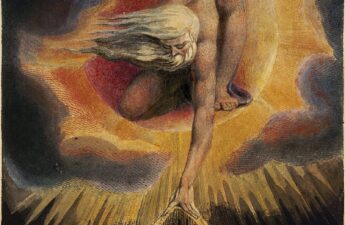“Far away there in the sunshine are my highest aspirations. I may not reach them, but I can look up and see their beauty, believe in them, and try to follow where they lead.”
Louisa May Alcott, as quoted in Elbert Hubbard’s Scrap Book, 1923, by Elbert Hubbard
We may be tempted to devalue qualities we ourselves fail to obtain, values we fail to meet.
In doing so, we lower the expectation, minimizing our own failings on comparison. When standing in front of greatness, we can shrink or shine. There is a sense of awe and as is often the case when faced with the sublime, we are frightened of it. We are frightened of greatness because of the labour involved in achieving it and the fear of failure due to our own deficiencies. We measure ourselves to the task and we very often come up short. What we do when we come up short is a true test. We can toil and strive in an attempt to reach the ideal, or we can attempt to sabotage the very ideal itself.
Let us bring it into the light and take an example.
Let’s say, when we are faced with difficulties or challenges, we frequently cower away. We seek the shadows and find shelter there. Each time we choose to shrink in cowardice, we move further and further away from the ideal of courage. That ideal however, despite our own behaviour, still exists, and we continue to compare ourselves to it. Needless to say, this time we come up astoundingly short. We look up at the ideal we fall so short of, embittered. If only that target wasn’t so high, or better again, if it didn’t exist at all, we wouldn’t appear so dreadful! In doing so, we bring the heavens crashing down to join us in the slums. Now we are level. Our poor behaviour becomes excepted as the norm and the trajectory is lateral, at best.
“Nihilism is but the other side of conventionalism; its creed consists of negations of the current so-called positive values, to which it remains bound.”
Hannah Arendt, 1978, The Life of the Mind
Let us bring more light and take another example.
Let us say that we live in a society which deems being a good mother as an ideal role, or a measure of great success for the female sex. Being a mother, a good one, means lots and lots of sacrifice. It requires the gravest level of responsibility. It is demanding and difficult and complicated, being a good mother. We look at this and think, we can’t do that; we can’t be that. Now, we are faced with a sum of choices: we can decide to face the ideal and still attempt to fulfil it; we can decide that due to a number of our own shortcomings, we may not ever fulfil this ideal, but recognise it nonetheless; or, overcome by the ideal, we become embittered and insist that motherhood is no extraordinary matter. In choosing the final option, sentiment by sentiment, we depreciate the ideal before us.
It is a common tactic when we are faced with our own failures to devalue the exemplary.
The danger in this is that we come to exist in a lateral world, where no one excels. By choosing to diminish one particular ideal, we diminish the very idea of even holding ideals. Ideals are not meant to be easily achieved, they are meant to act as measuring points and targets to which we build and strive to reach. If we banish them, what are we meant to aim for? A world without ideals is a grim one; a dark and undiscovered place where people, like birds in a cage, have clipped wings. By blocking out the light of the ideal, we are easing the pain of our own failures. But in the same act, we hinder any chance of advancement. We are inhibited from using the light as a guide. We resign to nothingness.




